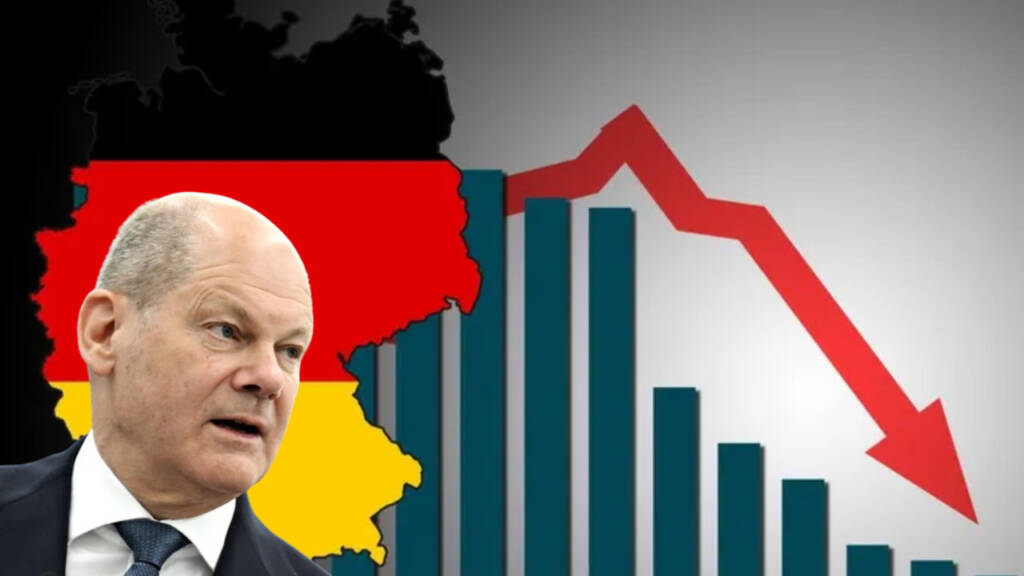Germany experienced a contraction of 0.3% in the previous year. This decline can be attributed to several challenges the country faced, including increased energy costs, elevated interest rates, a shortage of skilled labor, and an internal budgetary predicament. These issues have contributed to a prolonged period of economic stagnation since the final months of 2022.
The International Monetary Fund anticipated Germany to be the poorest-performing major developed economy in the past year, marking a significant departure from its previous status as a model for economic expansion during global economic uncertainties. The country’s economic struggles were not limited to the broader trends; its economy is expected to have contracted by another 0.3% in the fourth quarter of the year, following a period of stagnation in the third quarter.
How did Germany transition from being an exemplar of economic expansion during global uncertainties to the identified “poorest-performing major developed economy”?
Join us on Telegram: https://t.me/tfiglobal
There is an ongoing debate surrounding the reasons behind Germany’s economic slowdown. One perspective suggests that Germany’s engagement in assisting Ukraine might have contributed to this downturn. The argument posits that the economic aid extended to Ukraine had a consequential impact on Germany’s own economy, resulting in a contraction.
According to a report, Germany provided substantial financial support – more than 27.8 billion euros to Ukraine, in addition to military equipment.
Did Germany’s attempt to play economic superhero backfire, leaving its own economy in need of rescue after assisting Ukraine?
Energy-intensive industries in Germany are facing increased natural gas prices due to the loss of Russia’s previously affordable supply, a consequence of Russia’s invasion of Ukraine. Simultaneously, a surge in inflation has dissuaded consumers from spending, further impacting economic dynamics.
Is Germany experiencing a notable increase in natural gas prices due to the depletion of Russia’s previously affordable supply, a consequence of Russia’s invasion of Ukraine? This is what Germany gets for aiding Ukraine?
Read More: Germany tried to become France and ended up becoming a Joke
Moreover, German companies are grappling with challenges in filling highly skilled positions. The scarcity of qualified personnel is a persistent concern. Additionally, the country’s substantial factory sector has been affected by a global deceleration in manufacturing activities, contributing to economic pressures.
German farmers are currently engaged in public protests, expressing discontent with Chancellor Olaf Scholz’s recent austerity measures. The crux of their frustration centers around reductions in diesel subsidies and tax breaks for agricultural vehicles, which they argue could have detrimental effects on their farming operations.
Their primary grievance is the perceived prioritization of extensive support for Ukraine by the government, leaving the local agricultural sector feeling neglected and unsupported. The protests manifest in the form of tractor rallies in Berlin, disrupting traffic flow, and blockades that contribute to a state of chaos. This unrest underscores the tension between governmental priorities and the concerns of the agricultural community, highlighting the challenges faced by farmers in light of policy decisions that impact their economic well-being.
Read More: Ukraine Aid Sparks Farmer Fury in Germany
In light of the economic discontent expressed by German farmers, how does the perceived prioritization of extensive support for Ukraine by the government impact the local agricultural sector, and what economic ramifications are anticipated?
Additionally, some observers highlight a prolonged deficiency in investment in critical infrastructure, such as rail networks and high-speed internet. The focus on fiscal responsibility under this constitutional amendment is seen as a contributing factor to the long-standing inadequacies in crucial infrastructure development, presenting another facet of the challenges confronting Germany’s economic landscape.
As Germany navigates its economic labyrinth, from being a global model to its current struggle, one can’t help but wonder: Did the economic fairy tale take a detour through the chaos of tractor rallies, budget debates, and misplaced priorities? Is Germany now the protagonist in a story where aiding others turned out to be a double-edged sword, leaving its economy in need of a rescue mission?
Watch More:
